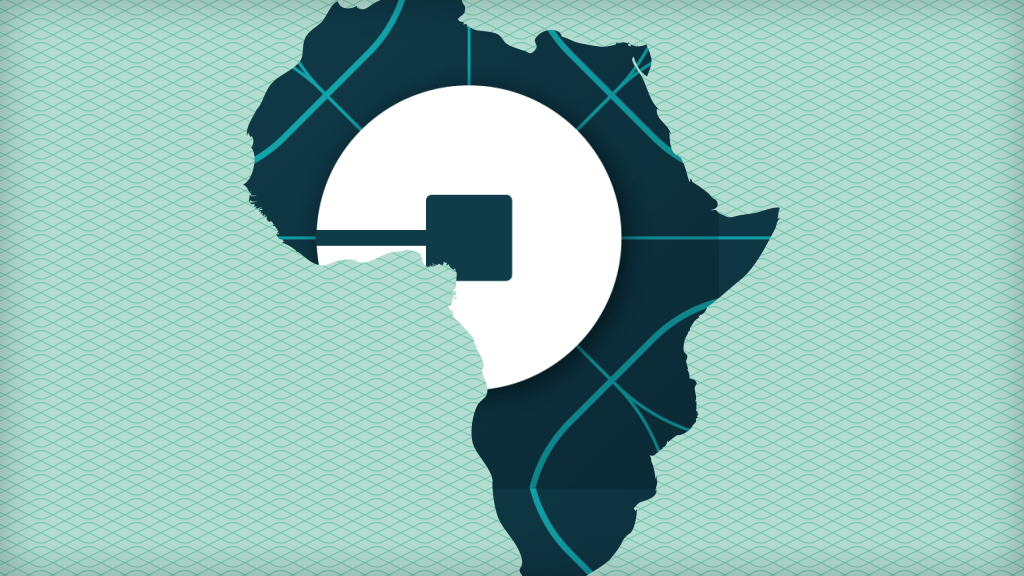Jake Bright
Jake Bright is a writer, author and advisor with a focus on global business, politics, and technology.
From 2017 to 2020, he was a contributing writer and advisor at TechCrunch where he published on Africa, mobility and politics. Bright helped spearhead consistent Africa coverage and co-produce the first Startup Battlefield competitions in Africa and Africa focused programming on the Disrupt San Francisco mainstage.
Bright’s first book, The Next Africa (Macmillan 2015), forecast the rise of Africa’s venture backed startup scene. Prior to this he worked in international finance and as a speechwriter in Washington, DC. Bright continues to contribute occasional guest pieces at TechCrunch.
More posts from Jake Bright
While Uber continues its push into Africa the company is making allowances to local markets and testing unique service models users wouldn’t see in other parts of the globe. Anyone can now use the mobile app to hail a car in 12 cities across South Africa, Nigeria,Uganda, Kenya, Morocco and Egypt…. And in all of those countries users can pay drivers in hard cash.
The expansion, and adaptation to the realities of doing business on-the-ground in Africa, are in line with CEO Travis Kalanick’s commitment late last year to “a big push in Africa.”
Part of that push is a flexibility to experiment with business models that make sense for the continent. “We are a global company but we take into consideration local things. We can’t enter new markets with a one size fits all mentality,” Uber General Manager for Sub-Saharan Africa, Alon Lits, told TechCrunch. “There are things that are truly Uber we absolutely maintain, but Uber Africa managers are empowered to adapt the business to local markets,”
So what is the company doing differently in Africa? The most notable adaptation—strongly contrarian to Uber’s frictionless finance model everywhere else—is allowing cash payment.
Passengers in Kenya, Nigeria, Egypt, and Morrocco have the option to pay in physical or digital currency. Uber Uganda, which launched this week, will offer both options also.
“It’s a big operational change. Nairobi was only the second city globally where Uber tested cash,” said Lits. He noted the shift to cash in Kenya led to a three-fold increase in Uber use, which is a bit surprising. Kenya has the highest mobile payments use in the world, largely due to the success Safaricom’s M-Pesa product. Uber has payment partnerships with M-Pesa and Nigerian digital payment startup Paga.
Cash seems to allow many to give Uber a try, see how it works, and then load their payment information at a later stage. Alon Lits, Uber GM, Sub-Saharan Africa
The impetus for testing cash connects to the lower e-finance penetration in Nigeria, and a “distrust of e-commerce” in both countries. Lits likened it to the U.S. in the late 90s, when consumers were still wary of giving up personal information for online transactions.
“Cash seems to allow many to give Uber a try, see how it works, and then load their payment information at a later stage,” he said.
In addition to payment models, Uber Africa is also testing methods to overcome addressing challenges. “Streets are not as well mapped across the continent as many of our other markets, which poses challenges for our driver-partners,” said Lits.
In Kenya, Uber is testing a pilot program with local directions startup OkHi, which uses smartphones and digital images to overcome inaccurate or non-existent postal codes, street names, or physical addresses.
“Rather than the Uber driver aiming for number, say, 7 Mombasa Road—which may not be mapped—he or she can aim for the white fence or green gates of the exact location as seen on a mobile device.”
Lits indicated the company is monitoring mobile innovation developed in Africa to locate passengers with data points other than physical addresses for possible use in places such as the U.S. “There are a lot of things we are testing in Africa, from ordering Uber cars to landmarks, to new security and crash protections, that could have relevance to our model across the globe,” he said.

Uber Africa is also following third party logistics and e-commerce delivery applications closely. Though the company has not yet introduced its UberEats or UberRUSH delivery apps in Africa, it sees unique opportunities for such amenities.
Africa has a robust market trading culture, but fewer local options for professional logistics services. Nigerian E-commerce startups Jumia and Konga created their own delivery fleets to make up for this deficiency.
Uber Africa’s emergence as one of the continent’s more reliable transit networks creates potential to move more than just people. “We’re at a point now in most of our African cities where, on average, one can get an Uber car in five minutes or less. Given the logistics alternatives in those cities, if drivers can carry a passenger and a car effectively across distances, what else can those drivers carry?,” said Lits.
He confirmed the company is open to exploring new delivery applications with Africa’s e-commerce players and consumer goods businesses. “We know that companies are already making use of our passenger distribution network to deliver food and other products,” he added.
Of course, not everyone in Africa has welcomed the San Francisco based startup’s disruptive technology. Some of the latest pushback to Uber wasn’t just from yellow cabbies in NYC or the city of Austin. Anti-Uber protests and even violence has popped up in Johannesburg and Nairobi.

“There’ve been physical fights on the street and attacks against Uber drivers,” said Bitange Ndemo, a professor of entrepreneurship at the University of Nairobi and former Kenyan national minister of technology and information, based in Nairobi.
“Uber charges about one quarter of normal fares and comes directly to the passenger so it’s good for consumers. It’s tough on the local drivers, but is forcing changes to the analog way of doing things,” Ndemo said.
He noted the Kenyan government is now looking at upgrading addressing systems, and non-Uber car services are updating to GPS systems for picking up passengers.
Of Uber’s friction in African markets, Lits said a lot of it “comes down to misinformation and misunderstanding of how Uber operates.”
He underscored the company’s policy of “engaging with local operators in all new markets to see how we can improve the quality of the industry as a whole.” One way Uber is doing that, according to Lits, is expanding opportunities for drivers and breaking down barriers to entry while improving car quality through Uber initiated financing programs which allow more drivers to enter the market in new cars.
So where in Africa will users see new Uber cars in the near future? The transit app will soon launch operations in Ghana and Tanzania.






























Comment